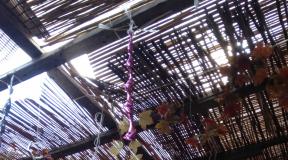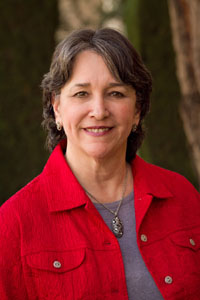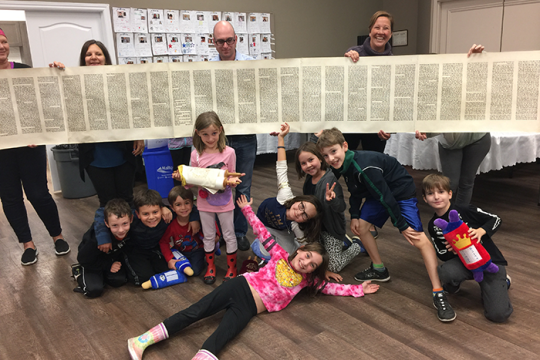
I have had the pleasure of writing about some very unique holiday experiences that took place in my home when I was growing up. Passover seders with Jesuit priests, discovering the connection between the World Series and "Yom Kippur" transistor radios, and Hanukkah being a time when we all looked forward to my father dressing up as Santa. Yes, unique experiences indeed.
Sukkot never really made it into my memory bank as a highlight of Jewish life in our family. When I was asked to write about Sukkot, I wasn't sure there was much to share. And then I dug deeper.
In fact, the message of Sukkot in the Mishkin family is quite profound – and, once again, reflects the values my parents chose to instill in us: respecting and embracing "the other."
My mother decided we were going to build a sukkah – and so we did. (Translation: Because Mishkin men weren't exactly carpenters, my mother called Freddie, our family handyman, and had him build "the hut," which he would subsequently take down at the end of the holiday, store in our garage, and rebuild the following year.) I recall it being filled with Indian corn and some type of leaves (I don't think palm fronds were available in Monroe, NY!). Here's the part, though, that makes me question my memory: I strung popcorn and dried cranberries and hung them from the top of the sukkah. I also made two signs for the Sukkah; one said Bruchim HaBaim (Welcome), the other Sukkat Shalom (A Sukkah of Peace).
So far, nothing particular extraordinary (although the popcorn and cranberries seem a bit odd).
Annually, our visitors in the sukkah included a gathering of all the relatives from near and far - always a wonderful day.
The other people whom we invited into our sukkah were the members of the Monroe Republican Party. My mother referred to it as the "Republican Party Coffee Klatch!" When did that become so odd to me?
As a child, all I knew was that the Republican Party members were good friends of ours. They were part of what made Monroe such a wonderful community. I never connected my father's political philosophy with that of the Republicans. However as I grew into adulthood, I began to wonder why my father – clearly a liberal thinking man whose values most definitely were not in synch with the Republican Party – was connected with them? What was my father thinking?
He was thinking about how much he valued building community for himself and his family. When he moved to Monroe, with a wife and two small children, he wanted to make connections and be part of the beauty of a small town. He was interested in local politics and the Republican Party was the only game in town. So he joined. To build community. He was a man of great integrity, however, and so I never sensed that he changed his beliefs just to fit in.
So how is it that I grew from a child who embraced "the Republicans" as friends to an adolescent and young adult who never would have told anyone that we invited the Republican Party into our sukkah to an "older adult" who sees that it was all good. Although my father was a Democrat and held beliefs that were far more aligned with that party, the most important "beliefs" he held were that our home should be open to all and that there is no need to compartmentalize people.
In fact, the sukkah encourages us to do the same. It is built on firm ground and, much like the family in which I was raised, it will not fall over (we would pray!). It has walls and a roof, allowing us to see both out and in, and one whole side that is open to the world. It screams "together" and "one another," not "us" and "the other."
What are we doing in our religious and communal institutions today to engender openness and non-judgmental behavior? Are we raising critical thinkers who examine issues without the labeling that often goes with discussions of world and community concerns? How do we ensure that the youth of the Reform Movement don't make assumptions that "All Jews are…." or "There are no ……Jews."
Remember: The sukkah has no door to close people out. Nor should we. Not in our relationships, our language, our rituals, or our communal gatherings.
Dr. Madelyn Mishkin Katz is associate dean at Hebrew Union College-Jewish Institute of Religion’s Jack H. Skirball Campus in Los Angeles, CA.




